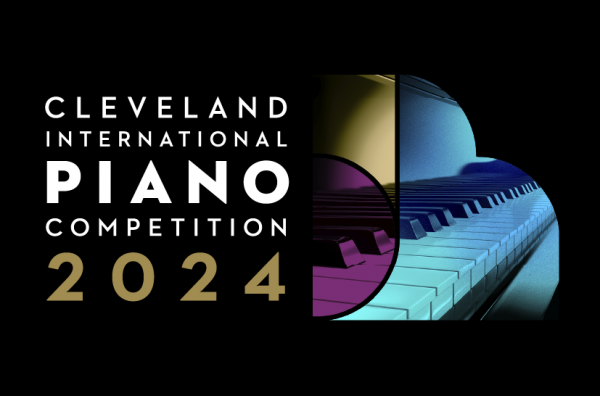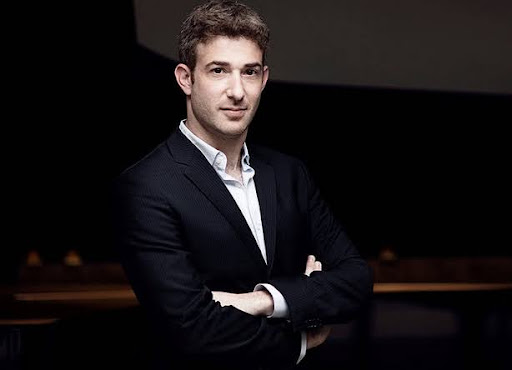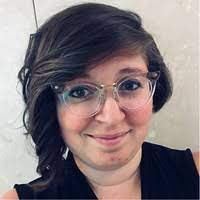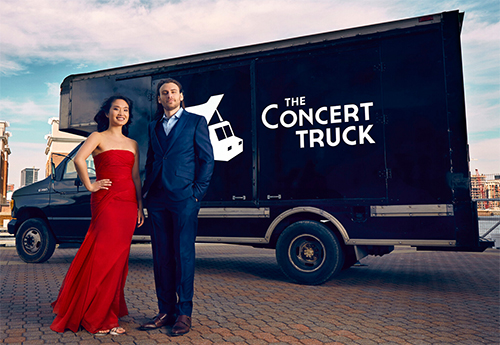by Mike Telin

“A lot has changed in the classical music world during the past 50 years,” CIPC president Yaron Kohlberg said during a recent Zoom call, adding that this year’s competition is all about creating more and better ways for it to serve the contestants, the audience, and the community at large.
After receiving 265 applications from 28 countries and regions, 55 contestants were selected to compete in the First Round that was held in the spring at Baldwin Wallace Conservatory and Salle Cortot at École Normale de Musique in Paris. From that field, 16 were selected to come to Cleveland for the Quarter-Finals, which will begin on Monday, July 29 in Reinberger Chamber Hall at Severance Music Center. The competition runs through August 10. Click here for more information and here to read about the contestants.

First competition that Kohlberg and his team have planned themselves
During the same Zoom call, CIPC executive director Marisa Glynias Moore noted that much of the 2021 competition was already in place by the time Kohlberg and his team arrived. “We made it happen, and COVID notwithstanding, we were able to add some things that worked really well. And we’ve been trying to build on those successes over the past three years.”
How they identified what worked and what should change
Moore said that Kohlberg brings a lot of expertise to the table. “He is the winner of ten international prizes and is the 2007 silver medalist of the Cleveland International Piano Competition, and he’s served on numerous competition juries and taken part in many international conferences. Because of those experiences, he was able to identify problems in the competition world, and ask the question, ‘Is there anything we can do about those?’ So that’s where we started.”
“Marissa and I had a tradition of having one-on-one sessions at her place — we called it the Lakewood office,” Kohlberg said. “I would arrive with a bunch of crazy ideas, then she and I would think about how we could make some of them work. So all of the elements you see in this competition are things that both of us have been working on for a very long time.”

Changes in the prize structure
The first prize winner will receive $75,000 USD, a Carnegie Hall debut recital, a recital at Tonhalle Zürich, professional management services and mentorship provided by Arabella Arts and Piano Cleveland, and a recording on the Steinway & Sons New York label. The second, third, and fourth prize winners will receive $25,000, $15,000, and $10,000 respectively.
This year’s prize structure also includes a new artist development program, which is open to all 16 contestants. This includes mentorship opportunities with leading pianists, faculty, and innovators in the classical music world, and short courses in personal branding and social media, fundraising, artist finances, and similar topics, offered in partnership with Young Concert Artists.
The artist development program also includes residencies at Northeast Ohio universities.
Kohlberg said that the Cleveland Institute of Music residency will include teaching opportunities, in collaboration with the faculty in multiple programs, as well as giving a solo recital.
“The University of Akron residency is similar, except that they’ll be teaching with both the piano faculty and the music education faculty. And at Kent State, an arts entrepreneurship residency will involve building a project and learning how to use business skills towards the project goal. They will also play recitals and work with the entrepreneurship faculty and students.”
Kohlberg noted that by design, the three residences are very different from each other. “We want to be able to pair them with the institution who we think is going to be the best fit.”
Final Salon Round
The 2024 competition will also introduce the first-ever Salon Round, in which contestants will perform a 45-60 minute program in historic Glidden House. Programs will include personal narratives and histories spoken by the pianists.
“This is one of the things we’ve added that is totally new,” Kohlberg said. “We’re trying to provide our contestants with new experiences that are important in today’s world. We believe that communicating with an audience in an intimate setting, and being able to bring a story together with your performance, helps to engage listeners. We are giving them some guidance because some of them might be doing that for the first time. At the same time, we want them to do it their own way without us imposing too much.
Marissa Moore said: “During the first round we interviewed the contestants, and almost 90% of them spontaneously told us that it’s really important to speak to the audience during their performance. So we are working with a generation of musicians who understand the value of this.”
From Sunday, July 21 through Saturday, July 27, The Concert Truck will carry free concerts across town, featuring the 16 Quarter-Finalists and including a special night with the Guardians.
“We had a great experience with The Concert Truck a couple of years ago,” Kohlberg said. “We understand that not everybody is going to attend the competition, so we’re taking it on the road to different communities. We explained to the competitors that this is not a traditional performance, but in their lives as musicians, there is a very high likelihood they would find themselves doing this kind of thing. This is also a great opportunity to connect with communities and invite them to join us for everything we have coming up later on.”
“Asking them to play on an electric piano was a concern,” Moore said, “but they understand the importance of community outreach, not only for their individual careers, but for the good of classical music.”
For the Night at the Guardians on Monday the 22nd, The Concert Truck artists Nick Luby and Susan Zhang will be playing at Gateway Plaza before the game and the contestants are going to be jamming on a real piano inside the stadium. “Yaron is throwing out one of the first pitches,” Moore said. “And he’s going to play a live rendition of ‘Take Me Out to the Ballgame,’ which they’ve never done at Progressive Field. So it’s going to be really fun.” Click here for concert truck locations.
Pop Up Pianos
CIPC is also extending the idea of placing pianos around town — in 2013, there was Play Me I’m Yours, and in 2021, they created the painted piano project, where local artists were hired to turn the pianos, primarily in outdoor locations, into art pieces. In celebration of the 50th anniversary, six golden pianos have been placed in prominent and sometimes unexpected locations throughout the city.
As part of the installation, Piano Cleveland is hosting 30-45 minute pop-up concerts with local pianists at each site. When the pianos are not being used for scheduled performances, Piano Cleveland encourages pianists of all levels to play. Click here for locations and scheduled public performances.
Re-imagined opening ceremony: Grand Piano Playoff
On Sunday, July 28 at 6:00 pm at the Hanna Theatre in Playhouse Square, the 16 Quarter-Finalists will team up for an evening of two-piano transcriptions of pop and rock tunes.
“I was just speaking about this at the big international competition conference in Italy,” Kohlberg said. “People really love the idea that we’re teaming pianists up to play popular music. This not only makes the opening ceremony more interesting and exciting, it also helps introduce the contestants to the audience, who can then vote for their favorite pair and continue to follow them throughout the competition.”
The tunes this year
There are Olympic themes, ABBA’s Dancing Queen, Survivor’s Eye of the Tiger, Let It Go from Frozen, Queen and David Bowie’s Under Pressure, Guns N’ Roses’ Sweet Child O’ Mine (Kohlberg’s favorite), and Rick Astley’s Never Gonna Give You Up (Moore’s favorite).
Chamber music round now part of the Semi-Finals
“This is the first time that we’re doing piano trios and not quintets,” Kohlberg said. “And it will be part of the Semi-Finals instead of the Finals. It’s a great way to see how the pianists interact with other musicians before they go to play with The Cleveland Orchestra. I think that will tell the jury and the audience quite a bit. Violinist Maria Yudenich and cellist Gabriel Martins are both wonderful, top-level musicians who are young, very energetic, and charismatic. We’re thrilled that they agreed to do it.”
Looking back on 50 years
“I’ve spent a lot of time going through our archival materials,” Moore said. “One of the things that caught my attention was when the Casadesus was founded, they were intentional about finding the best artistic pianists. All of this restructuring is about identifying pianists who have something to say in their artistry. I think it’s kind of amazing that even though we’ve changed so much, the core of who we are hasn’t. We’re not changing course as much as extending and broadening what we’ve always been.”
“Once the competition begins,” Kohlberg said, “I’m going to try to sit back and enjoy it as much as I can. And to try to give everybody — contestants, patrons, and audience — the best experience possible.”
Published on ClevelandClassical.com July, 16 2024
Click here for a printable copy of this article



